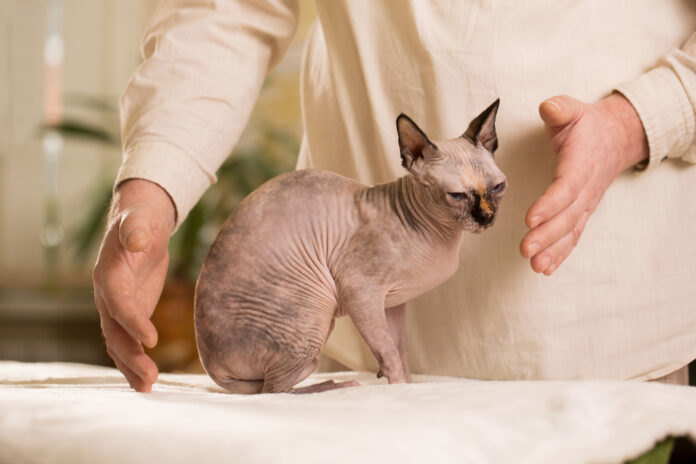Common Ear Problems in Dogs and Cats

From infections to age-related hearing loss, our canine and feline companions are prone to several common ear problems.
Does your dog or cat scratch his ears and shake his head a lot? If so, he may have a problem. Ear issues are among the most frequently seen conditions in veterinary practice. Unlike humans, who commonly have “earaches” involving the middle and inner ear, the majority of problems in animals involve the outer or external ear canal.
1. EAR INFECTIONS
In most animals, ear disease takes the form of infections. In younger dogs and cats, ear mites are the most common culprit and are contracted by contact with other infected animals.
Ear infections in older animals are usually caused by yeasts or bacteria. These can result from excessive wax in the ears (very common in many spaniels), excess moisture, allergies, food sensitivities, mange, immune problems, and hormonal disease (thyroid and adrenal disorders).
The cause is diagnosed by visual examination and by taking a small quantity of the material in the ear and looking at it microscopically. After determining the exact cause of the infection, the proper therapy can be prescribed.
2. HEMATOMAS
Aural hematomas (ear blood blisters) are occasionally seen in dogs and rarely in cats. They can occur in animals of any age, although most of my patients are middle-aged and older.
Hematomas develop as the smaller blood vessels under the skin of the ear bleed. The cause is not always known but is usually associated with animals that, for whatever reason, shake their head and ears. The leaky vessels form a blood clot that develops between the skin of the ear and the underlying cartilage.
Herbal and homeopathic therapies can resolve some hematomas, especially the smaller ones. Larger hematomas usually require surgery to remove the clot and stop the bleeding.
3. HEARING LOSS AND DEAFNESS
Some deafness is inherited. Light-colored dogs and cats and merle-colored dogs tend to exhibit variable degrees of deafness from birth. There is no treatment for these animals.
Hearing loss, meanwhile, is quite common in senior animals, just as it is in older people. In some cases, it’s a sign of cognitive disorder and will improve with therapy for that condition. For this reason, I treat all cases of deafness with the therapies I use when treating animals with cognitive disorder.
Most often, however, deafness in older animals is part of the normal aging process, and is progressive and irreversible.
DEALING WITH INFECTIONS
Treating ear infections requires topical therapy with either conventional medications or herbal or homeopathic ear drops. Treatment must be given for at least two to three weeks to make sure the infection has cleared. Ear mites must be treated for a minimum of four weeks with the appropriate topical therapy.
herbal or homeopathic ear drops. Treatment must be given for at least two to three weeks to make sure the infection has cleared. Ear mites must be treated for a minimum of four weeks with the appropriate topical therapy.
I rarely need oral medications to treat ear disease, but I do use them to control infections. Olive leaf extract is a wonderful natural therapy that helps boost the immune system as well as kill bacteria and yeasts. Used with topical therapies, it has helped cure many a problem ear disorder. Other therapies, including various homeopathics and herbs such as Echinacea or goldenseal, may also boost the animal’s immune system and act as a natural antibacterial/antifungal.
Prior to treatment, it’s important that your animal’s ears are thoroughly cleaned, or your attempts to treat them at home will be less successful. This is done while your animal is still at the veterinarian’s office. Since infected ears are often painful, sedation or anesthesia may be needed.
Most of my patients with ear disease respond to therapy with topical medications, immune support, and natural antimicrobials. If your animal has recurring ear infections, don’t get discouraged; he or she can benefit from a similar treatment.




